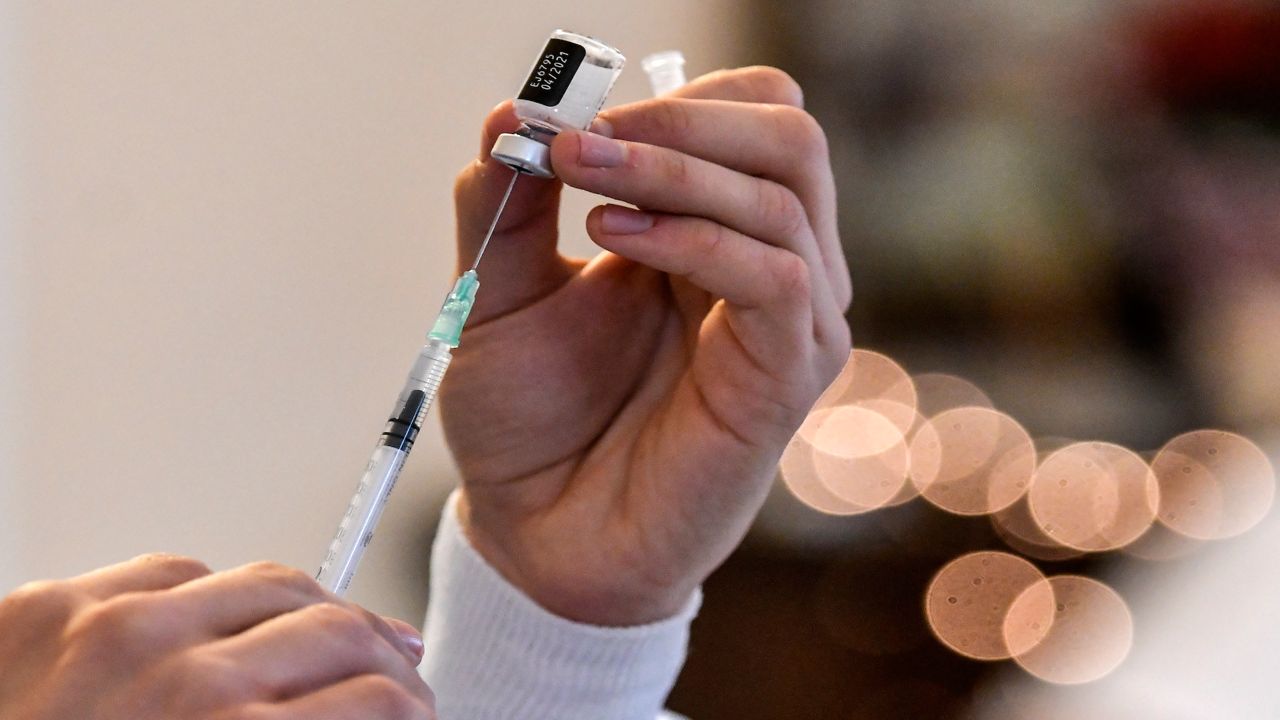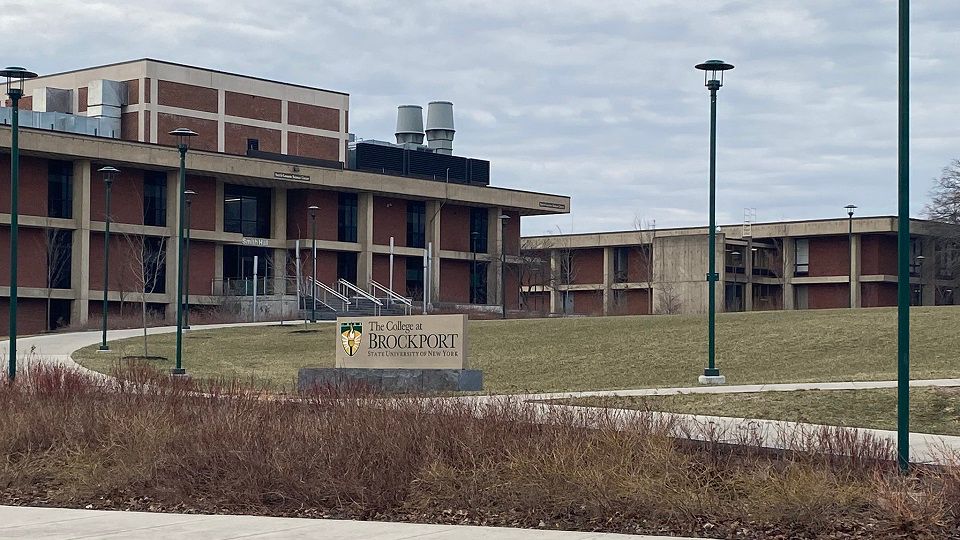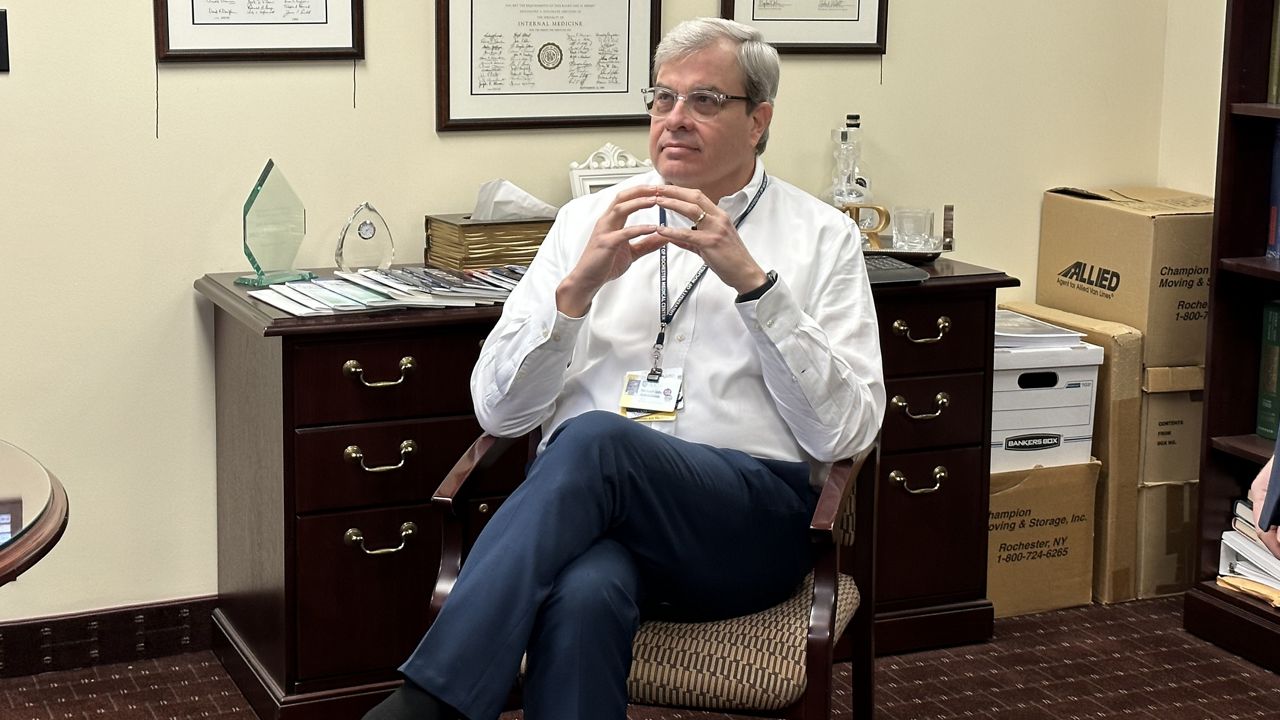ROCHESTER, N.Y. — It has been two years since the first confirmed case of COVID-19 in New York.
It was in those early days of the pandemic that former State Sen. Ted O'Brien contracted the virus. He spent nearly 70 days in the hospital, fighting to recover.
Now he and his wife are talking about the life-altering experience.
Sometimes the smallest steps are actually the biggest.
“Feels great," said O'Brien. "My lungs seem to be fine, which is amazing.”
These days O’Brien runs three miles, which is impressive on its own, especially when you look at where he was almost two years ago.
“I couldn’t walk from my door to the sidewalk," O'Brien said. "I did that the first day we committed to rehab. [The] next day it was the sidewalk to the neighbor's driveway.”
In March 2020 O'Brien started having flu-like symptoms. COVID-19 was first starting to spread in the U.S. at that time.
As his symptoms got worse, his wife sue decided to bring him to Rochester General Hospital.
The former senator spent the next 68 days there, battling the virus. Most of that time was spent on a ventilator and in a coma.
“From our side, we knew days were passing and we knew he didn’t know days were passing," said Sue. "When we finally communicated with him, when he was awake and alert, the first few questions were 'what’s today?' and him realizing that he lost a month. It’s a hard thing to tell someone.”
After realizing O'Brien wasn’t getting better, his doctors had to try surgeries that had never been done on active COVID patients. The next step in his journey included a tracheotomy. It was a procedure the operating team had to fight for.
"Very little was understood about this disease at the time," O'Brien said. "The doctors were figuring it out as they went along. The care I got at RGH was fantastic. They were studying COVID all the time."
Through all of this, sue and their two daughters were at home, calling the hospital three times a day for updates and only communicating with O'Brien through an iPad.
Sue says it was hard not being in the room with her husband, especially when he was unable to speak for himself.
"I think families who had to walk the same road we’ve been on understand how hard it is not to be in the hospital when your loved one is there," Sue said. "Sometimes you can’t do anything except talk to them and sometimes that feels like not enough.”
In May 2020, O'Brien went home. But he wasn’t the same man he was 68 days before. His time on the ventilator destroyed almost 80% of his lungs. And he was still too weak to do simple things like brushing his teeth and walking to the front door.
“Even when he stopped getting worse, and made baby steps to getting better, his lung scans were still terrible," said Sue. "I started having frank conversations with the doctors. If they don’t get better, not sure if he’ll be able to work again, run again.”
But after taking it step-by-step, O'Brien believes he’s fully healed. Almost two years later, he’s back to work full time and just completed a 5K race.
"Sue’s been instrumental in the recovery in so many ways," O'Brien said. "Not just physically, but emotionally, in helping me regain my footing after a pretty tough experience. I almost didn’t make it through, she’s been a rock."
The experience changed the whole O'Brien family, showing them that the little steps you take in life can be the ones to move you forward the most.
"I was happy when he came into my life and I’m happy we get to move forward together," Sue said.
"She’s still putting up with me,” said O'Brien.









